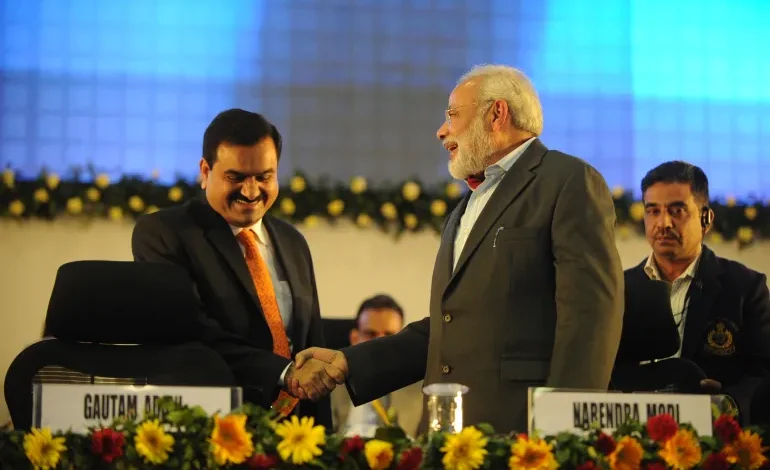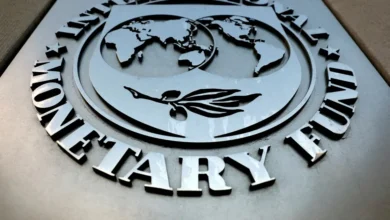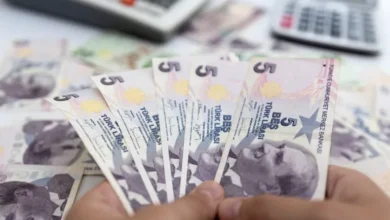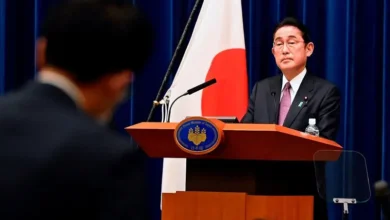Modi govt allowed Adani coal deals it knew were ‘inappropriate’

The Indian government granted an extraordinary favour to controversial tycoon Gautam Adani, boosting his coal business, documents reveal.
After Prime Minister Narendra Modi’s office had ascertained that a particular regulation handing over coal blocks to the private sector was ‘inappropriate’ and lacked transparency, his government made an exception. It allowed Adani Enterprises Limited to mine from a block holding more than 450 million tonnes of coal in one of India’s densest forest patches.
The government did not explain why the Adani Group, owned by billionaire Gautam Adani, was given an exception, documents accessed by The Reporters’ Collective (TRC), a non-profit media organisation based in India, and Al Jazeera show.
Until a recent stock market rout on allegations of accounting fraud by a US-based short seller, Adani was the third-richest person in the world.
His group was given the exception under a regulation introduced by the Modi government following a 2014 Supreme Court ruling that cancelled the allocations of 204 coal blocks. Many of the blocks had been illegally allocated to companies owned by state governments, the court found. These companies, in turn, had been handing over the lucrative business of mining to private companies at prices that were kept under wraps in secret contracts. The Adani Group got one such contract in July 2008.
The court had found all this had gone on without legislative sanction and, in its ruling, cancelled all the coal blocks and the mining contracts that had been handed out, forcing the companies to forfeit them.
But the Modi government’s decisions enabled the Adani Group, whose business fortune has risen in parallel with Modi’s political heft, to continue to mine coal, unfettered by the court ruling as well as the government’s own policy decisions that put many other private players at a disadvantage. To date, the company has mined more than 80 million tonnes of coal from the block.
Coal scam
In 2014, a new government led by Modi’s Bharatiya Janata Party (BJP) rode to power on an anticorruption wave. The previous Congress-led United Progressive Alliance (UPA) government had been caught in a swirl of news reports, auditor findings and litigation pointing to large-scale corruption and crony capitalism in two particular sectors — the allocation of airwave spectrum to telecom companies and distribution of coal blocks to private miners. The latter was dubbed “Coalgate”.
Instead of auctioning them to earn the highest possible revenue, the UPA government allocated coal mines to industries through an opaque and discretionary method, charging a minimal royalty. The Comptroller and Auditor General of India (CAG), the government account’s auditor, concluded that this modus operandi had caused a nominal loss of $22bn to the exchequer.
In his political campaigns in the lead-up to the 2014 national elections, Modi berated the UPA government, “Coal scam has darkened the face of entire nation,” he tweeted on September 13, 2012. “AICC is now an abbreviation for All India Coal Congress,” he added, twisting the abbreviation for All India Congress Committee, the formal name of the incumbent Congress party’s central decision-making body. After winning the elections, his government set out to “transparently” re-auction the coal mines.Our investigation, however, reveals that even the new administration allowed private corporations to continue to bypass the competitive process to corner large coal reserves. Part one of this series showed how the government allowed business conglomerate RP-Sanjiv Goenka (RPSG) group to use shell companies to undercut competition in coal auctions and regain access to a coal mine. Part two reveals how the government helped the Gautam Adani-owned group to continue its coal-scam-era deals through another route.
Bypass route
During the UPA administration, coal blocks were allocated not just to private sector firms but also to central and state government-owned companies. They in turn gave the mining rights to private companies under secret contracts at undisclosed rates. In the mining industry jargon, these contracts are called Mine Developer and Operator (MDO) contracts.
For the Adani Group, the MDO route, with its higher profit margins compared with the investment and operating cost of running the business, was a lucrative entry point into the coal business even though, technically, commercial coal mining was still prohibited at the time. Over time, the group has emerged as India’s biggest coal MDO — currently, it has nine MDO contracts for blocks holding more than 2,800 million tonnes of coal.
By 2014, the Adani Group had cornered five such contracts.
Two contracts were signed directly by BJP-ruled state-owned firms. One was signed by a Congress-ruled state government. Two others were joint ventures between different state-owned companies. In both these latter cases, one of the joint-venture partners was a firm owned by a BJP-ruled state government.










